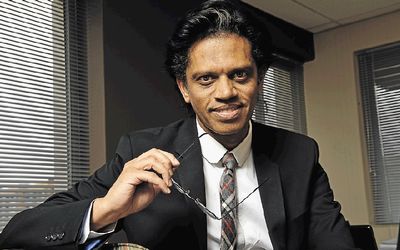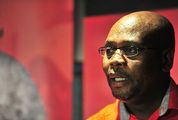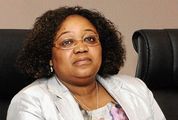New programme offers hope for change in auditing industry
by Andile Makholwa,
2015-04-01 09:33:56.0
THE South African Institute of Chartered Accountants (Saica) has made progress in helping to produce more black chartered accountants, but still very few of them become auditors.
The Independent Regulatory Board for Auditors (IRBA) is now betting on the new Audit Development Programme to fast-track transformation after Parliament voted in favour of the Auditing Profession Amendment Bill last month.
The bill allows for the implementation of the programme, which is meant to enable the regulator to monitor candidates and intervene should problems arise during the clerkship. It provides 18-month specialist training in an auditing firm for chartered accountants who want to be auditors.
CEO of the IRBA Bernard Agulhas said "transformation in the profession has been slower than we would have hoped" although progress had been made over the past 20 years.
SA has 3,8161 chartered accountants. Of these 3,425 or 9% are black. When Indians and coloureds are included, the figure jumps to 23%.
When it comes to registered auditors, blacks make up 9.2% of the total population of 4,367. The figure jumps to 23% with Indians, Chinese and coloureds. In July 2006, blacks constituted a mere 3% of auditors — 10% with Indians and coloureds.
Senior executive for professional development at Saica, Mandi Olivier, ascribes such improvements in the numbers to initiatives such as the Thuthuka Bursary Fund and the Thuthuka Repeat Programme, which assists candidates who fail the exams.
The slow pace of transformation in the auditing industry is being blamed on the fact that many big companies, including state-owned enterprises, still prefer to be audited by the big four white-owned auditing firms – KPMG, PWC, Delloitte and EY.
Others say black chartered accountants often get highly paying jobs elsewhere and therefore leave the profession early in their careers.
Mr Agulhas said the IRBA wanted to work closely with stakeholders to find solutions.
"We must influence the direction of the industry," he said. "We’ve got to ensure that opportunities are given to the black firms and to black auditors within white firms."
This did not mean blacks should be treated differently.
"The Audit Development Programme opens up the auditing industry. It allows the regulator to keep an eye on the clerk. Now we can intervene," he said.

Bernard Agulhas. Picture: FINANCIAL MAIL
THE South African Institute of Chartered Accountants (Saica) has made progress in helping to produce more black chartered accountants, but still very few of them become auditors.
The Independent Regulatory Board for Auditors (IRBA) is now betting on the new Audit Development Programme to fast-track transformation after Parliament voted in favour of the Auditing Profession Amendment Bill last month.
The bill allows for the implementation of the programme, which is meant to enable the regulator to monitor candidates and intervene should problems arise during the clerkship. It provides 18-month specialist training in an auditing firm for chartered accountants who want to be auditors.
CEO of the IRBA Bernard Agulhas said "transformation in the profession has been slower than we would have hoped" although progress had been made over the past 20 years.
SA has 3,8161 chartered accountants. Of these 3,425 or 9% are black. When Indians and coloureds are included, the figure jumps to 23%.
When it comes to registered auditors, blacks make up 9.2% of the total population of 4,367. The figure jumps to 23% with Indians, Chinese and coloureds. In July 2006, blacks constituted a mere 3% of auditors — 10% with Indians and coloureds.
Senior executive for professional development at Saica, Mandi Olivier, ascribes such improvements in the numbers to initiatives such as the Thuthuka Bursary Fund and the Thuthuka Repeat Programme, which assists candidates who fail the exams.
The slow pace of transformation in the auditing industry is being blamed on the fact that many big companies, including state-owned enterprises, still prefer to be audited by the big four white-owned auditing firms – KPMG, PWC, Delloitte and EY.
Others say black chartered accountants often get highly paying jobs elsewhere and therefore leave the profession early in their careers.
Mr Agulhas said the IRBA wanted to work closely with stakeholders to find solutions.
"We must influence the direction of the industry," he said. "We’ve got to ensure that opportunities are given to the black firms and to black auditors within white firms."
This did not mean blacks should be treated differently.
"The Audit Development Programme opens up the auditing industry. It allows the regulator to keep an eye on the clerk. Now we can intervene," he said.






















Post a comment